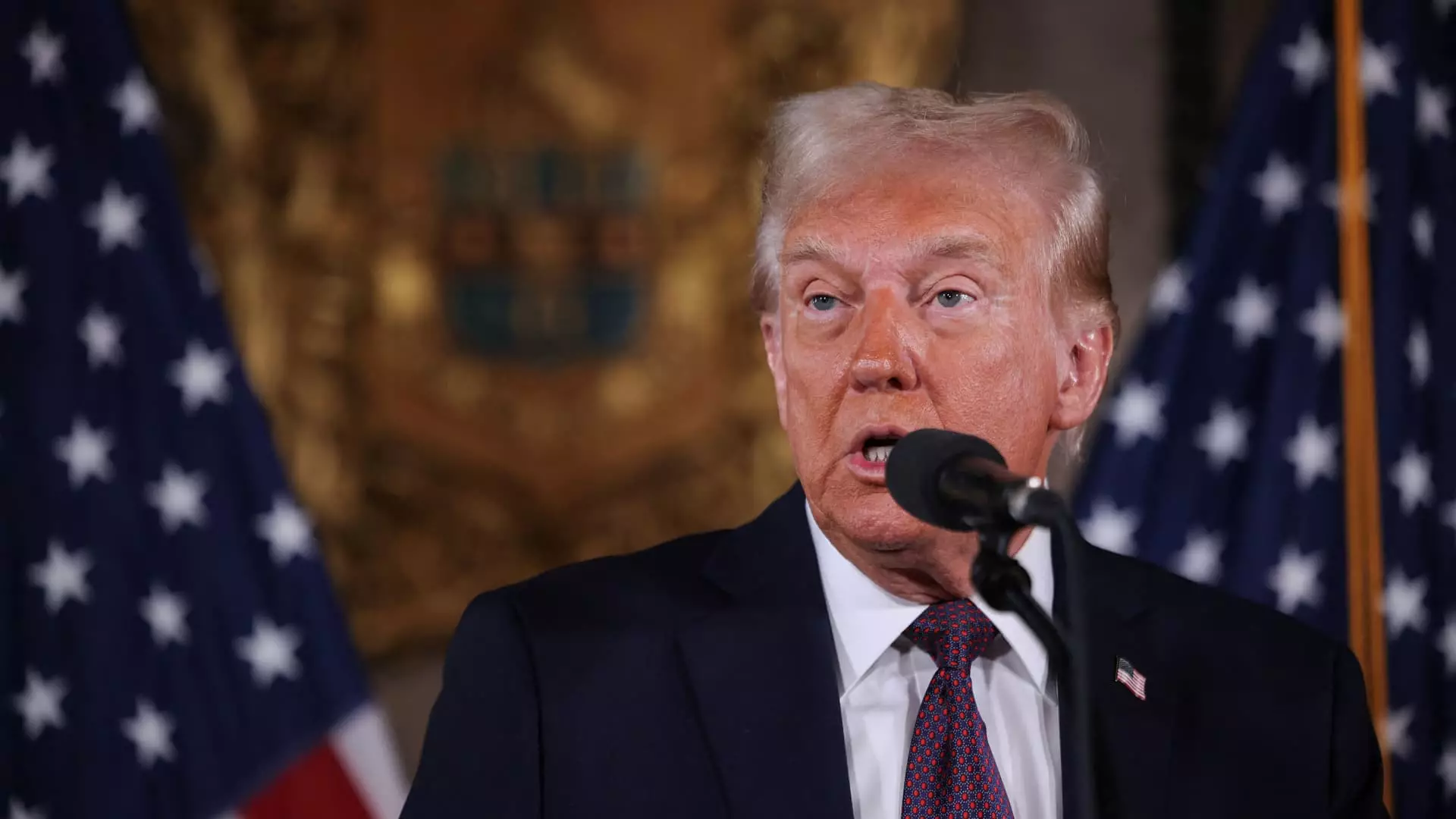In a groundbreaking move, President-elect Donald Trump recently unveiled an ambitious plan that promises to redefine the landscape of foreign investment in the United States. This initiative, which centers around a substantial $20 billion commitment to develop new data centers nationwide, signifies a pivotal moment not only for the incoming administration but also for the global business climate. The investment, championed by Emirati billionaire Hussain Sajwani, founder of DAMAC Properties and an associate of Trump, underscores a burgeoning relationship between foreign capital and American enterprise.
During a press event at Trump’s Mar-a-Lago estate, the president-elect highlighted that the first phase of this large-scale investment would primarily target states such as Texas, Arizona, Oklahoma, Louisiana, Ohio, Illinois, Michigan, and Indiana. Sajwani expressed his enthusiasm, indicating that the election of Trump served as a catalyst for this significant financial commitment. His assertion that this investment could potentially exceed the initial $20 billion indicates an optimistic outlook on the future economic engagement between the U.S. and foreign investors.
This initiative is particularly noteworthy as it reflects a shift in perception among investors who are receptive to political changes within the U.S. landscape. The enthusiasm surrounding Sajwani’s commitment mirrors a larger trend, signaling that foreign powers are eager to engage with the United States in the wake of Trump’s victory.
Sajwani’s investment is not an isolated incident; it is part of a broader narrative of escalating foreign investment in the U.S. fueled by Trump’s election. In December, SoftBank’s CEO, Masayoshi Son, announced an intention to invest an astounding $100 billion in American operations, with the aim of generating approximately 100,000 new jobs. Such commitments underscore a pronounced interest in U.S. enterprise from global leaders, possibly aligning with Trump’s strategy to revitalize the American economy through foreign capital.
The incoming administration’s approach towards international investment is characterized by the allure of incentives, such as expedited permitting processes, designed specifically for sizable investments — those surpassing $1 billion. This initiative could potentially lead to a surge in foreign direct investment, fostering job creation and economic growth in various sectors.
However, this influx of foreign investment is not without its challenges and criticisms. Skeptics argue that relying heavily on foreign capital may undermine domestic industries and lead to economic vulnerabilities. Furthermore, there are concerns regarding regulatory standards and how foreign entities might navigate U.S. laws. The administration must balance enthusiasm for foreign investment with the responsibility of protecting American interests.
While Trump’s announcement of a $20 billion investment initiative by Hussain Sajwani signals an exciting phase in U.S. foreign relations and economic policy, it also calls for careful scrutiny. As the nation moves forward into this new era of potential economic expansion, stakeholders must remain vigilant in ensuring that these investments serve the broader interests of the U.S. economy and its workforce.

